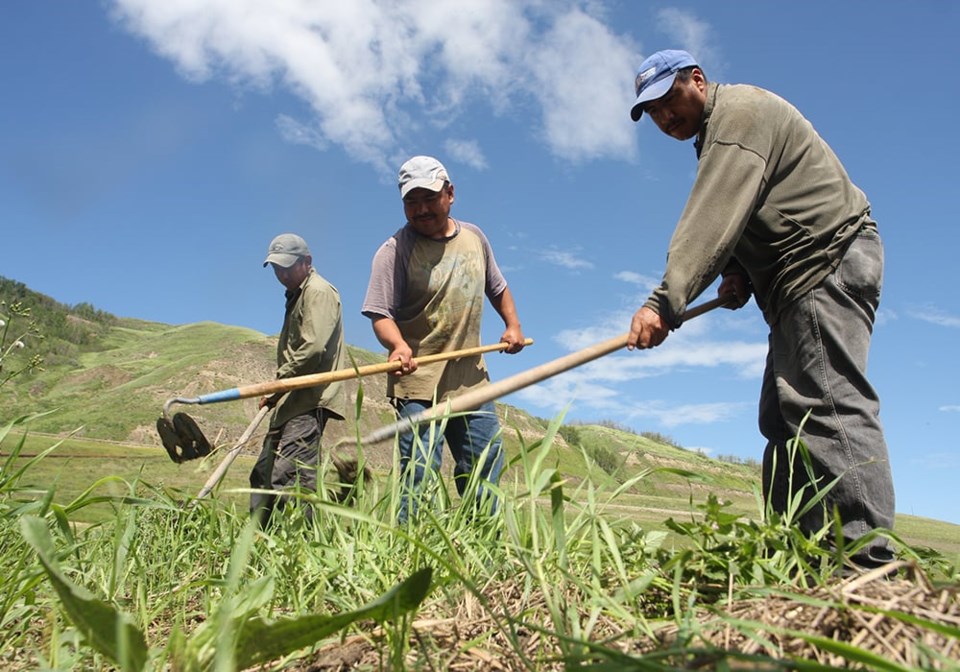Bill George, who grows grapes for winemaking in Ontario’s Niagara region, has heard hundreds of comments about temporary foreign workers employed at Canadian farms.
Most accusations are delivered through social media and are based on mis-information. But it’s especially frustrating when a person of influence makes what he considers a ridiculous comment about foreign workers in Canada.
Last week, a representative of the United Nations said that Canada’s temporary foreign worker programs are a “breeding ground for… slavery.”
“Employer-specific work permit regimes, including certain Temporary Foreign Worker Programmes, make migrant workers vulnerable to contemporary forms of slavery because they can’t report abuses without fear of deportation,” said Tomoya Obokata, who spent two weeks in Canada in late August.
He urged authorities to do more to protect workers and help them become permanent residents of Canada.
Obokata’s slavery comments were clearly directed at Canadian agriculture, as a large share of temporary foreign workers are employed by farmers and the agri-food industry.
George, the former chair of the Ontario Fruit and Vegetable Growers’ Association, said the comments are hard to comprehend.
“One thing needs to be made clear. The workers coming to farms in Ontario and Canada, under bona fide, legitimate programs, have all the rights and protections that every other worker in the ag sector has,” said George, the labour section chair with OFVGA.
“I see these claims and I scratch my head. I know it (abuse) can’t be happening under the bona fide programs.”
Janet Krayden, the agri-workforce expert with Mushrooms Canada, which represents mushroom growers and the broader industry, was more direct in her response.
Canada’s temporary foreign worker programs are highly regulated and already provide a pathway for workers to become Canadians, she said.
Few countries can make that claim, including Japan.
“We invite him (Obokata) to seriously look at his own country,” Krayden said.
“They have 1.8 million foreign workers in Japan with no immigration options. Which I think is extremely unfair…. Clearly, the Japanese rapporteur has not done his homework and doesn’t understand what is offered in Canada for temporary foreign workers.”
Canada has created programs like the Agri-Food Immigration Pilot, where migrant workers on livestock farms, meat processing greenhouse, nursery and mushroom production, can become permanent residents.
The federal government announced in May that the pilot program will continue.
At the time, the Canadian Labour Congress, the largest labour organization in the country, endorsed the program.
“The CLC is pleased that the Agri-Food Pilot will be extended for another year,” said Bea Bruske, CLC president.
Krayden said the critics of Canada’s TFW programs don’t appreciate the value of having a job. People who come to Canada for other reasons, refugees or professionals who hope to get a high-paying job in Toronto or Vancouver, may wind up unemployed or under-employed in a large city.
“There are people in Toronto living in tents. That would never happen for the highly regulated (TFW program),” she said. “They (temporary foreign workers) have a job. They have housing. They have airline tickets, paid for by (the employer).”
George employs six to eight workers though the Seasonal Agricultural Worker Program and the employees come back to his farm, year after year.
“I think my shortest serving guy, is about 16-17 years. My longest is upwards of 30 years…. These guys are like family…. That’s the case you’re going to see with most farms in Ontario. Workers keep coming back.”
He added that farm groups are trying to spread a positive message about TFW programs, but it’s difficult.
“You want to react to that UN individual. But at the end of the day, I don’t think that does the sector any good,” he said.
“We need to be out promoting when workers come to Canada, it’s good for Ontario farms. It’s good for the workers…. That’s the message we’re trying to get out. This is a good thing. It’s not something anybody should be ashamed of.”
Meanwhile, dozens of international media outlets picked up the story about the UN rapporteur, who criticized Canada’s foreign worker programs.
The government of Iran even issued a statement, though Nasser Kanaani, of Iran’s Foreign Ministry.
“The spokesman said the recent devastating report by the UN special rapporteur on modern forms of slavery is concerning and reveals the actual character of the Canadian government’s discriminatory human rights practices,” the Tehran Times reported.
“Kanaani prioritized the dignity of Indigenous Peoples and migrant labor in Canada. He also urged human rights organizations to take the problem seriously.”
Contact [email protected]

